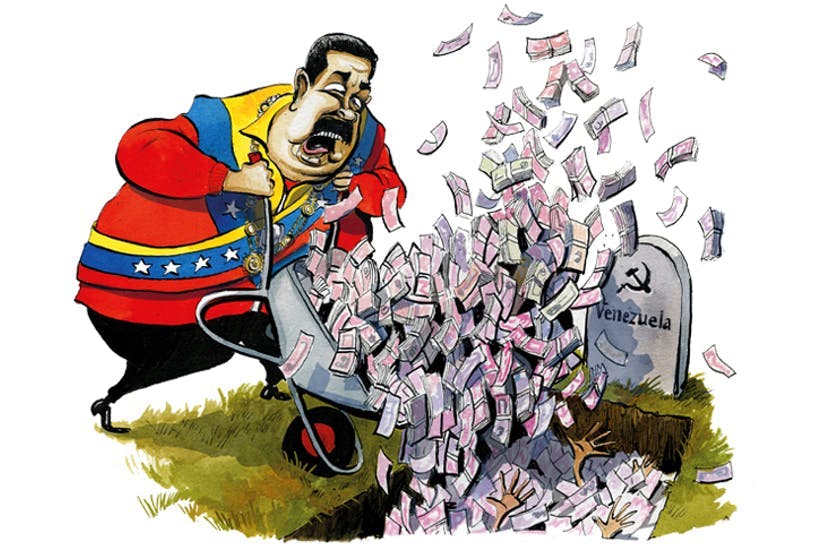
Retrieved
*** El análisis de Elliot Abrams sobre las razones del fracaso de la política internacional dirigida a recobrar la democracia en Venezuela, rescata como elemento fundamental que el régimen venezolano es ante todo una “empresa criminal”.
Por ALFREDO MICHELENA
Leer el reciente artículo de Elliot Abrams produce una doble sensación. Por una parte da alegría saber que dio en el clavo en muchos de sus planteamientos, pero también da tristeza, por no decir rabia, el saber que fueron años, en buena medida, perdidos, pues la definición del sujeto, contrincante o enemigo, como lo quieran denominar, estaba errada. Por lo que las políticas destinadas a recobrar la democracia, al no estar focalizadas al meollo del asunto, aunque afectaron al régimen, no tuvieron la eficiencia y eficacia necesaria para defenestrar a Maduro.
Para Abrams, “el régimen no es una dictadura militar, sino una empresa criminal, cuyas élites están estrechamente vinculadas al narcotráfico y otras actividades ilícitas”.
Así es, no es una dictadura militar, pero tampoco es, como se alega, un gobierno socialista o comunista, aunque hay un núcleo o una facción de la estructura de poder que así lo crea y nos lo haga creer. Usan la desgastada bandera del socialismo/comunismo, que postula la búsqueda de una sociedad más justa- que por cierto nunca se obtiene- como coartada, cuando en realidad el objetivo es tener controlado el país de arriba abajo. Y para esto, aplican la fórmula de hacer al Estado dueño y/o controlador de la sociedad y la economía, de manera de manejar y usufructuar todo el poder, para beneficiar al régimen en sus múltiples facciones.
Hace mucho tiempo que venimos sosteniendo que lo que define al régimen es su carácter delictivo, por eso lo llamamos “pranato”, en referencia a los “pranes” o criminales que gobiernan las cárceles venezolanas.
Nuestro pranato articula diversos grupos que incluyen a venezolanos filocubanos chavistas; a militares corruptos; a los famosos boliburgueses; a grupos guerrilleros (FARC y el ELN) y a movimientos radicales islámicos; a potencias extraregionales y países de regímenes dictatoriales (Rusia, China e Irán); por supuesto, a la Cuba castrista; a los partidos y movimientos miembros del Foro de San Pablo; y por último, pero fundamentalmente, encontramos al crimen organizado nacional y trasnacional.
Para Abrams esto último estaría en el meollo del bloque en el poder; lo ilícito es la savia que lo mantiene funcionando. Por esto, las acciones para socavar sus bases deben tener un importante componente “policial y judicial” y en esto poco se ha avanzado. Sin embargo, en lo que se ha avanzado (sanciones y juicios a delincuentes) ha sido contundente.
Abrams no llega a proponer nuevas políticas para debilitar al régimen de Caracas. Sin embargo, la respuesta la parece esbozarla el Secretario de Estado Blinken al hablar sobre la defensa de la democracia y la lucha contra la corrupción en la región. Y, aunque nada fue dicho más allá del enunciado, este es un tema clave. El tema está muy vinculado a la lucha contra el crimen organizado internacional, pues estas bandas criminales trasnacionales se articulan y se enquistan tanto en el Estado como en la sociedad, sentando las bases para la permanencia de estos regímenes en el poder -Abrams dixit-.
Ya lo había anunciado Rex Tillerson, primer Canciller de Trump, cuando afirmaba que las ”organizaciones delictivas transnacionales” son la “amenaza más inmediata para nuestro hemisferio”. Hasta ahora, las administraciones estadounidenses no han entendido que ellas son también una amenaza para EE.UU. fundamente en cuanto a potencia mundial.
Courtesy Translation ->
Reading the recent article by Elliot Abrams produces a double sensation. On the one hand, it is joyful to know that he is right in many of his approaches, but it is also sad to know that these were years lost, since the definition of the subject, opponent or enemy, as you want to call it, was wrong. Therefore, because the policies aimed at recovering democracy were not focused on the heart of the matter, although they affected the regime, it did not have the efficiency and effectiveness necessary to oust Maduro.
For Abrams, “the regime is not a military dictatorship, but a criminal enterprise, whose elites are closely linked to drug trafficking and other illicit activities.”
That’s right, it is not a military dictatorship but neither, as it has been argued, a socialist or communist government, although there is a nucleus or a faction of the power structure that believes so and /or makes us believe it. They use the worn flag of socialism / communism, which postulates the search for a more just society – which by the way is never obtained – as an alibi, when in reality the objective is to have the country controlled from top to bottom. And for this, they apply the formula of making the State the owner and / or controller of society and the economy, in order to manage and use all power, to benefit the regime in its multiple factions.
For a long time we have been arguing that what defines the regime is its criminal nature, that is why we call it “pranato”, in reference to the “pranes” or criminals who govern Venezuelan prisons.
Our pranato articulates diverse groups that include Chavista filocuban Venezuelans; corrupt military; the famous Boliburgueses; guerrilla groups (FARC and ELN) and radical Islamic movements; extra-regional powers and countries with dictatorial regimes (Russia, China, and Iran); of course Castro’s Cuba; the member parties and movements of the Forum of São Paulo; and finally, but fundamentally, we find national and transnational organized crime.
For Abrams the latter would be at the heart of the bloc in power; the illicit element is the sap that keeps it working. For this reason, actions to undermine its bases must have an important “police and judicial” component, but just a limitated progress has been made in this regard. However, the progress made (sanctions and criminal trials) has been significant.
Abrams fails to propose new policies to oust the Caracas regime. However, the answer seems to be outlined by Secretary of State Blinken when spoke about the defense of democracy and the fight against corruption in hiss visit to the region. And, although nothing was said beyond the statement, this is a key issue. An issue that is closely linked to the fight against international organized crime, since these transnational criminal gangs articulate and encyst themselves both in the State and in society, laying the foundations for the permanence of these regimes in power -Abrams dixit-.
Rex Tillerson, Trump’s first Chancellor, had already point out that “transnational criminal organizations” are the “most immediate threat to our hemisphere.” Until now, US administrations have not understood that they are also a threat to the US as world power.

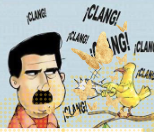
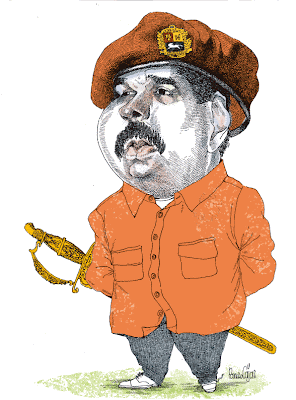
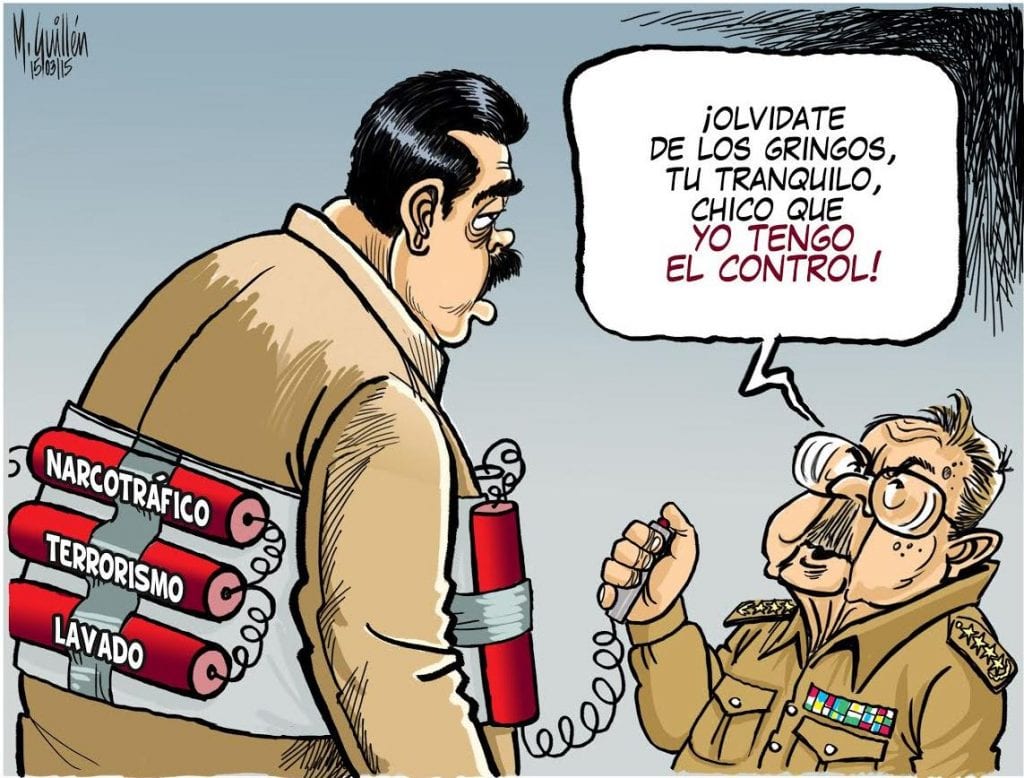
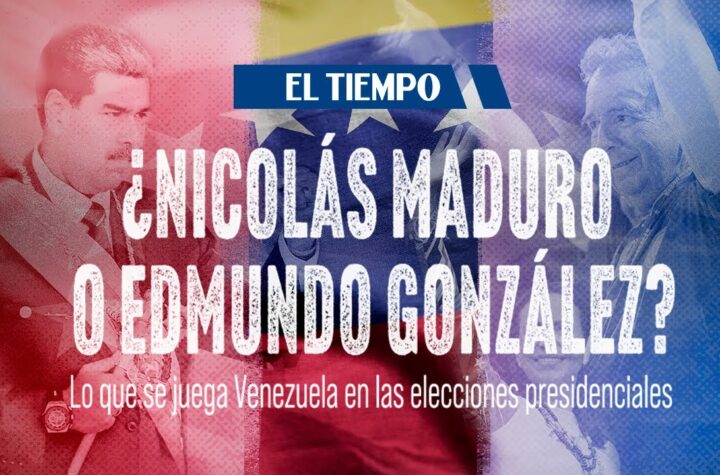
More Stories
Venezuela, elecciones entre pajaritos y mariposas
Maduro seeks to bolster military support ahead of next election
¿Qué hará Cuba el 28 de julio?